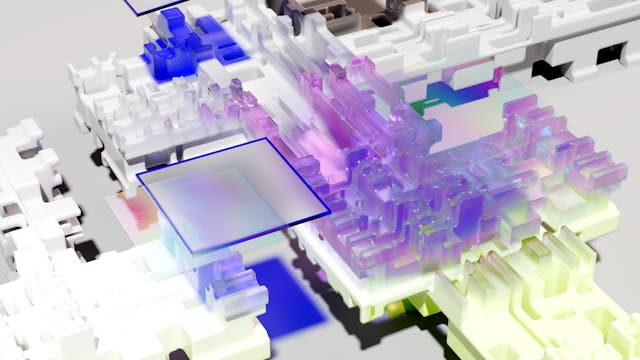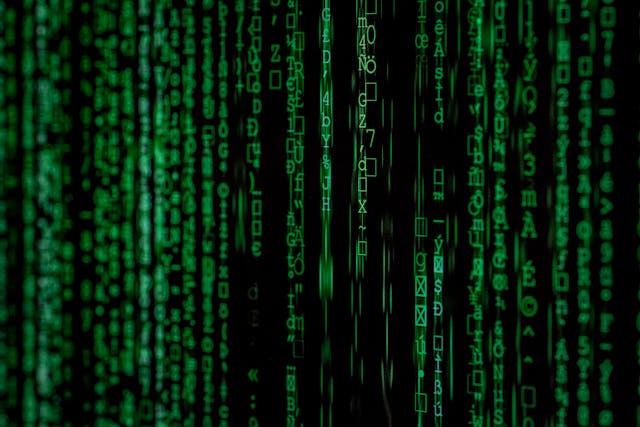Post - Quantum Encryption, the Future or a Buzzword
Quantum computing is transforming data security, but terms like quantum encryption and military-grade encryption are often misused. We clarify the differences between true quantum encryption and misleading marketing terms.
Written by human for humans
Quantum computing, a cutting-edge technology leveraging the properties of quantum mechanics, promises to revolutionise numerous fields, including data security. With its ability to process vast amounts of information at unimaginable speeds, quantum computing poses both a breakthrough and a threat.
While it has the potential to crack traditional encryption methods within minutes, it also opens the door to quantum encryption - a revolutionary solution that could redefine the way we protect data. But how exactly does it work, and why is it crucial for the future of data security?
The important distinction between quantum encryption and quantum-resistant encryption
It is essential to understand the distinction between quantum encryption and quantum-resistant encryption:
-
Quantum encryption leverages the principles of quantum mechanics, to secure data in a way that’s nearly impossible to intercept or decode. It represents a true breakthrough in cryptography. However, it is necessary to note, that quantum encryption is still more of a theoretical term, with the exception of Quantum Key Distribution (QKD) which has already seen some commercial adoption.
- Quantum-resistant encryption, also known as post-quantum encryption, is based on classical algorithms designed to withstand attacks from quantum computers. Quantum-resistant methods are a current solution against the growing quantum threat.

However, the marketing world often distorts these terms, leading to misconceptions. Cloud storage providers frequently use buzzwords like quantum or military-grade encryption to suggest state-of-the-art security, even when the technology they employ isn’t nearly as sophisticated. Such claims can mislead customers into thinking their data is more secure than it actually is.
Koofr implements strong security measures, including Advanced Encryption Standard (AES-256) that ensures the safety of user data. It utilizes advanced encryption technologies, including those resistant to quantum threats (symmetrical encryption methods). We focus on transparency and reliability, ensuring that our users understand the strength of their data protection.
Quantum computing and its implications for data security
Quantum computing is a revolutionary type of computing that uses the principles of quantum mechanics to process information. Unlike classical computers, which are efficient for sequential processing and rely on bits that are either 0 or 1, quantum computers use qubits. Qubits can exist in a state of 0, 1, or in any linear combination of 0 and 1, thanks to a phenomenon called superposition.
Qubits can be entangled, meaning the state of one qubit is directly linked to the state of another, even if they are far apart. This allows quantum computers to perform complex calculations much faster than classical computers, which process data in a linear, step-by-step fashion. Quantum computers are especially powerful for tasks like cryptography, simulating molecules for drug discovery, or solving optimization problems. However, it’s still an emerging technology and not yet widely available for everyday use. On the other hand, quantum computers pose the greatest threat to asymmetric encryption methods, such as RSA and Diffie-Hellman algorithm, while presenting a comparatively lower risk to symmetric encryption algorithms.
Quantum supremacy is the point at which a quantum computer can perform a task that is impossible or extremely impractical for even the most powerful classical computers to complete within a reasonable timeframe. It poses a potential threat to current cryptographic algorithms.
The safety of many encryption methods, such as RSA (Rivest-Shamir-Adleman) and ECC (Elliptic Curve Cryptography), relies on protecting against problems that are not easily solvable with classical computers. Quantum computers, through algorithms like Shor’s Algorithm, can solve these problems exponentially faster, making it possible to break traditional encryption methods. If quantum supremacy continues to advance, widely used cryptographic systems that secure online transactions, communications, and sensitive data could be vulnerable to attack.
This has triggered the development of quantum-resistant encryption methods, which aim to protect data even in a post-quantum world, where current algorithms may no longer be secure.
Quantum-resistant algorithms are being developed to withstand the power of quantum attacks. Developing and adopting these algorithms is crucial to protecting data in the future, ensuring that our digital infrastructure - spanning everything from banking systems to government communications - remains secure as quantum technology matures.
Quantum-resistant encryption is essential for a secure future, where sensitive information can continue to be protected despite the powerful capabilities of quantum computing.
Understanding Post-Quantum Encryption in Cloud Storage
Post-quantum encryption, also known as quantum-resistant encryption, refers to cryptographic algorithms designed to secure data against attacks from both classical and quantum computers. Unlike traditional encryption methods, which rely on mathematical problems that quantum computers can easily solve, post-quantum algorithms are built around challenges that even quantum computers struggle to crack. By implementing post-quantum encryption, organizations like Koofr can ensure that their data remains secure in a future where quantum algorithms pose a real threat.
Post-quantum encryption addresses today’s needs and anticipates the challenges of tomorrow. This proactive approach strengthens the security of critical systems, including financial services, government communications, and cloud storage, safeguarding them against potential breaches. Post-quantum encryption represents a forward-looking solution that prepares our digital infrastructure for the security challenges posed by quantum computing.

The buzzword trap: post-quantum encryption as a marketing tool
In the cloud storage industry, the term quantum has become a popular marketing buzzword, often misused to imply advanced, quantum-based encryption. This tactic can mislead customers into believing that their data is secured by cutting-edge quantum technologies.
In an era where cybersecurity is paramount, clarity and transparency are essential. Customers need accurate information to make informed decisions about their data protection solutions. Misleading claims can result in confusion about the effectiveness of encryption methods and erode trust in service providers. Clear communication about security measures helps users understand the real capabilities and limitations of their chosen services.
At Koofr, we prioritize honesty and transparency regarding our security measures. We do not use terms like quantum encryption to create misleading impressions. Instead, we provide clear and straightforward information about the encryption technologies we employ, including post-quantum-resistant algorithms that are designed to protect user data against quantum threats.
Never lose. Backup your data with Koofr
The myth of military-grade encryption
The term military-grade encryption generally refers to cryptographic methods that are used by military and government agencies to secure sensitive information. The origins of this term stem from the high-security standards and rigorous protocols employed in military communications, which prioritize data integrity and confidentiality. However, the exact specifications and technologies used can vary widely between different military branches and nations.

Despite its common usage, there is no standardized definition for military-grade encryption. This ambiguity allows companies to make broad claims about their security measures without providing concrete evidence or specifications. As a result, the term can be misleading, suggesting a level of security that may not be universally applicable or verified. Consumers may be led to believe they are receiving top-tier protection based solely on the label, rather than the actual effectiveness of the encryption used.
Share your experience and opinion on Reddit
By emphasising real security standards over marketing jargon, Koofr fosters trust and confidence among users, ensuring they understand the true capabilities of our encryption methods without the confusion that can arise from vague terms. This commitment to honesty and integrity is fundamental to our approach to data security.
In an era where quantum computing poses significant challenges to traditional data security, understanding encryption methods is crucial. While we highlighted the importance of encryption, which provides robust protection against current and future threats, we also wanted to emphasise the possible risks associated with misleading terms like quantum encryption and military-grade encryption. It is important that you, as a user, know what exactly are you getting from your cloud storage provider in terms of data security, which always needs to be presented transparently.
Join us on the Koofr subbredit. We'd love to hear from you!


